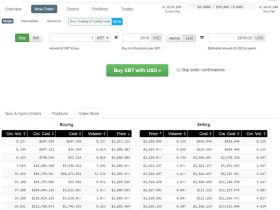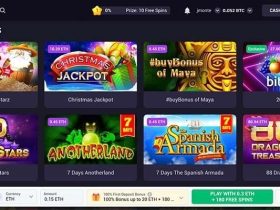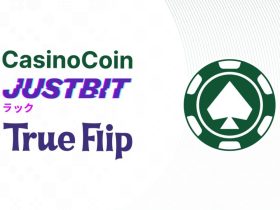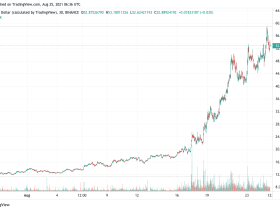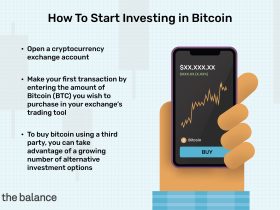
If you are interested in cryptocurrencies, you may be wondering what sushi crypto is all about. Sushi is a non-fungible cryptocurrency that operates on a decentralized exchange. It is a community-driven AMM and has a market cap of $1.4 billion. But what is Sushi exactly? How can it benefit you as an investor? Read on for the answers. In this article, we will cover the basics of sushi crypto and why you should invest in it.
Sushi is a non-fungible token
Shoyu, the non-fungible token, is a new platform integrating decentralized finance and the art world. This platform will be unveiled in Q2 2021 and will allow people to exchange digital works of art. The idea of combining the two worlds was proposed by a member of the SUSHI governance team. Shoyu will address the limitations of other NFT marketplaces, such as the small number of supported file formats, the large number of image sizes, and the high transaction fees associated with Ethereum.
The first project to use SUSHI was Uniswap, a protocol for decentralized exchanges. It was built by a group of passionate developers. The code is open source, and it uses a non-fungible SUSHI token to distribute rewards. It also allows the holders of SUSHI to keep earning rewards even after the protocol has stopped providing liquidity. With its success, SushiSwap has dubbed this project the “SushiSwap”.
It’s a decentralized exchange
The SushiSwap is a decentralized exchange which began life on the Ethereum blockchain in August 2020. Since then it has evolved into a financial super app, operating at a $110 billion volume across 1,893 trading pairs. Decentralized finance is a broad field that encompasses various forms of non-custodial financial products, including peer-to-peer loans, auto market-making protocols, and decentralized insurance protocols. The SushiSwap platform is built on this technology and is a perfect example of a decentralized exchange.
The SushiSwap platform allows investors to trade in various currencies, including cryptocurrencies like Ethereum, Litecoin, and Ripple. Users are rewarded with Sushi when they stake their cryptocurrency, and in turn, they get a vote in exchange for the privilege of voting on decisions made by the SushiSwap board. This makes SushiSwap one of the more popular cryptocurrencies, but it is still important to know what rules apply in your jurisdiction.
It’s a community-driven AMM
The Sushi cryptocurrency project is a decentralized exchange with automated market-making powered by smart contracts and community governance. Users of the Sushi exchange earn trading fees and yields by holding the SUSHI token and voting on fees, new liquidity pools, and grants. Users can use SUSHI to support the project and make the platform better. Currently, Sushi is the most popular crypto exchange by trading volume.
SushiSwap is one of the more innovative DeFi products, led by reputable smart contract developers and audited by reputable firms. In January 2021, the team revealed an ambitious roadmap, including franchised pools and a double yield. The team also announced the addition of an integrated 1-click Zap and LP curve options. In addition, the SushiSwap roadmap features a surprise project created by legendary crypto trader Andre Cronje.
It has a market cap of $1.4 billion
Sushi is a decentralized cryptocurrency exchange and Automated Market Maker. Its users earn Sushi as rewards for generating liquidity for the network. Sushi holders are also entitled to governance privileges and receive a percentage of its cost. However, Sushi is not yet available for sale in all states. In this case, investors should conduct their due diligence before investing. If you have any doubts, it is recommended to seek legal counsel.
The popularity of Sushi has been fueled by recent announcements by Arca and other digital asset advocates. They have a vision of democratizing ownership and distributing equity-like returns to active participants. Consequently, the SUSHI token has increased in value by more than 20% over the past few days. The company’s native coin, SushiCoin, has reached the top 70 crypto assets and is now listed on the top of the crypto market. As a result, SushiSwap has a $1.4 billion market cap, despite a lagging performance.
It uses automated market-making to execute trades
Its primary function is to offer liquidity to traders by adding funds to liquidity pools. These pools are vast piles of funds that the market makers use to execute trades on their behalf. By using the technology of automated market-making, they can generate a share of fees from each trade. As a result, they play a crucial role in the emerging DeFi ecosystem. However, they also present some serious restrictions.
In general, Automated Market Makers operate similar to order books, based on buy and sell orders. But they don’t require a trading pair to perform this function. Instead, they let users interact with a smart contract that acts as the other side of a trade. In this way, the decentralized nature of decentralized exchanges is made more understandable. Moreover, Automated Market Makers are similar to peer-to-contract solutions, where traders engage with the contract’s smart contract.
It offers crypto staking and farming
Decentralized Finance, a new trend in the cryptocurrency world, has emerged as a means of leveraging crypto portfolios. Decentralized Finance involves creating an infrastructure for various financial applications based on the blockchain. The blockchain enables protocols to stack, allowing complex financial use cases to be realized. The hottest crypto trends, such as crypto staking and farming, have emerged as a result. Both farming and staking can generate attractive returns for investors.
The main difference between yield farming and staking is that yield farming involves lending crypto coins to generate interest, similar to earning interest from savings accounts or lending to borrowers on modern P2P marketplaces. Unlike traditional staking on exchanges, yield farming requires little to no work and can generate passive income. There are numerous lending platforms that allow Yield Farmers to collect DeFi yields. While yield farming yields higher returns than staking, yield farming carries higher risks.






